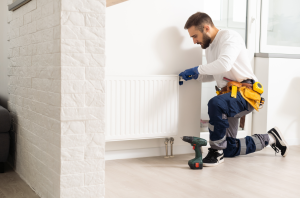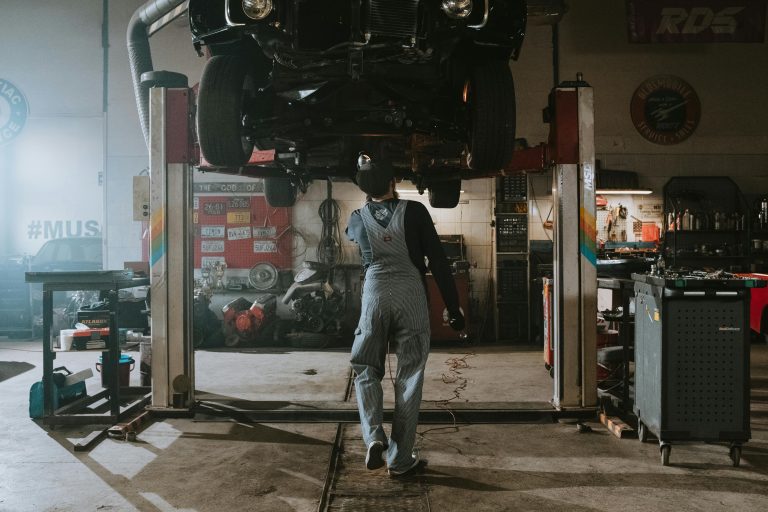In today’s fast-paced world, daily commutes, packed calendars, and long to-do lists can push vehicle maintenance down the priority ladder. But for drivers who rely on their cars every day, skipping essential care can lead to costly problems, decreased reliability, and safety risks. Having a practical and realistic maintenance checklist makes it easier to stay on top of your vehicle’s health, even with a demanding schedule.
Prioritizing Oil and Filter Changes
Routine oil and filter changes form the backbone of vehicle maintenance. Engine oil lubricates internal components, reduces friction, and keeps the engine running efficiently. As oil ages, it accumulates dirt and loses its viscosity, potentially causing internal damage. Busy drivers can benefit from setting reminders based on mileage or time intervals, depending on the vehicle’s make, driving habits, and whether synthetic or conventional oil is used.
Neglecting oil changes can compromise fuel efficiency and engine longevity. Checking the oil level regularly between changes ensures no hidden leaks go unnoticed. While some newer cars have oil-life monitoring systems, a visual check remains a smart step for anyone behind the wheel frequently.
Monitoring Tire Health and Pressure
Tires are another crucial part of a reliable driving experience. Worn or improperly inflated tires can affect fuel economy, braking performance, and handling. For drivers constantly on the road, quick visual inspections can identify uneven wear patterns or embedded debris. Tire pressure should also be checked regularly—especially during seasonal changes—as temperatures can affect pressure levels.
Rotating the tires helps them wear evenly, extending their life. Including this step during oil changes or other service visits can make the process more efficient. Properly maintained tires not only provide smoother rides but also support vehicle safety.
Keeping an Eye on Brakes and Fluid Levels
Brake responsiveness is not something to take lightly. Drivers with busy schedules often find themselves in stop-and-go traffic, which wears down brake components faster. Listening for squealing or grinding noises or feeling a soft pedal are indicators that inspection is overdue.
Alongside brakes, other essential fluids—coolant, brake fluid, transmission fluid, and windshield washer fluid—should be checked routinely. These fluids play distinct roles in the vehicle’s operation, from preventing engine overheating to ensuring visibility during bad weather. Keeping them at the proper levels prevents damage and maintains system functionality.
Recognizing Warning Lights and Unusual Sounds
Modern vehicles are equipped with dashboard indicators that signal issues early. Unfortunately, busy drivers may ignore or delay investigating these warnings, leading to preventable breakdowns. Whether it’s the check engine light or a low tire pressure alert, addressing these signals promptly can save both time and money down the road.
Strange sounds or vibrations should also not be brushed off. Humming, knocking, or clunking noises often indicate problems that need professional attention. Identifying issues early keeps minor repairs from turning into major replacements.
Scheduling Routine Inspections
Even when a vehicle seems to be running fine, regular inspections are crucial. Annual or biannual checks provide insight into components that are easy to overlook. Belts, hoses, battery health, and filters can all degrade silently over time.
For drivers in Los Gatos and similar climates, seasonal inspections are crucial to prepare for changing temperatures and travel. Trusted service partners like Reliable Auto Repair offer region-specific insights, understanding the local terrain and climate challenges as vehicle mileage increases. This local expertise helps tailor maintenance plans to individual driving habits and vehicle types.
Staying Organized and Proactive
One of the simplest ways to stay ahead of vehicle upkeep is by keeping records. A small folder or digital log noting service dates, mileage, and parts replacements gives a clear view of what’s been done and what’s due. This approach is especially helpful for busy individuals who manage multiple vehicles or rely on their car for work.
Proactive maintenance also supports long-term resale value. Well-documented service history signals responsible ownership and helps avoid depreciation tied to neglected issues.
Protecting Time and Vehicle Investment
A dependable vehicle is more than a convenience—it’s essential for getting to work, running errands, and managing family responsibilities. When regular maintenance becomes a habit, it prevents disruptions that can derail even the best-laid plans. Building a checklist around essential tasks and setting realistic intervals ensures the car stays in top shape without overwhelming the driver.
For those who balance full schedules, committing to manageable maintenance steps makes a big difference. With attention to oil, tires, brakes, and inspections, it becomes easier to drive confidently every day, knowing your vehicle is ready to keep up.







